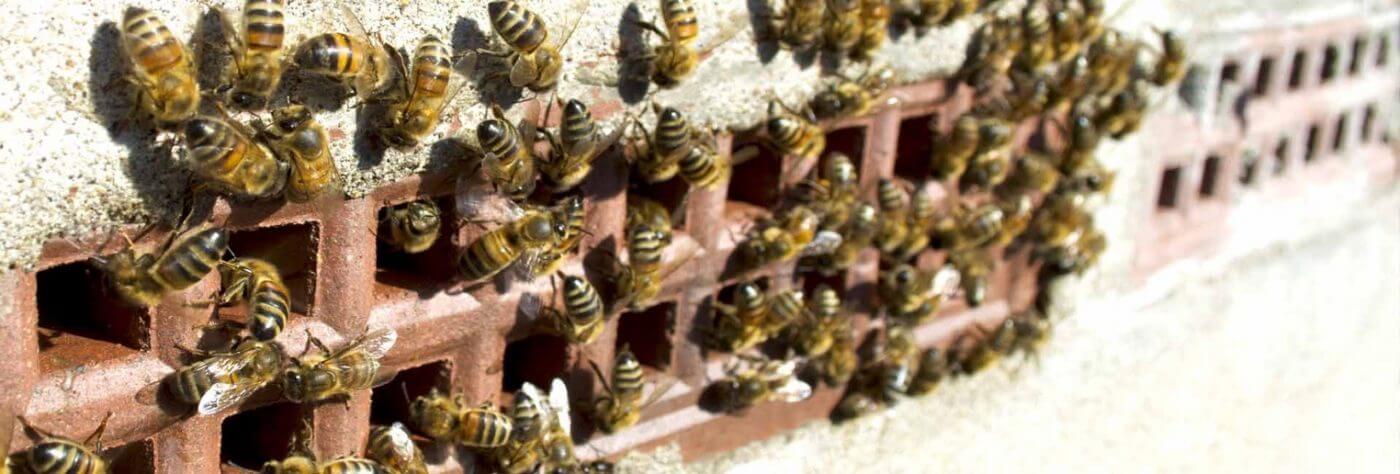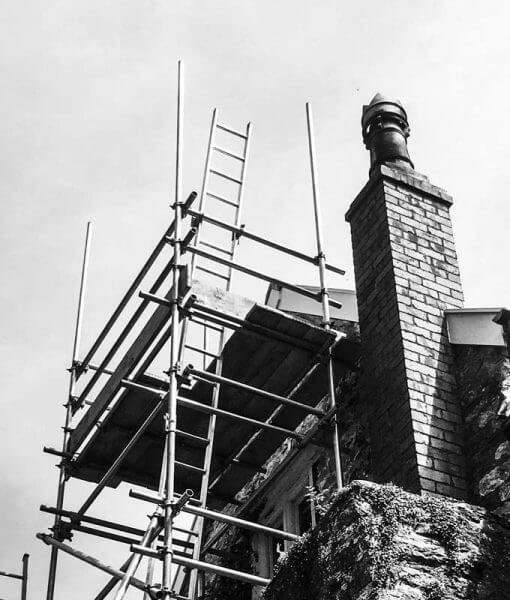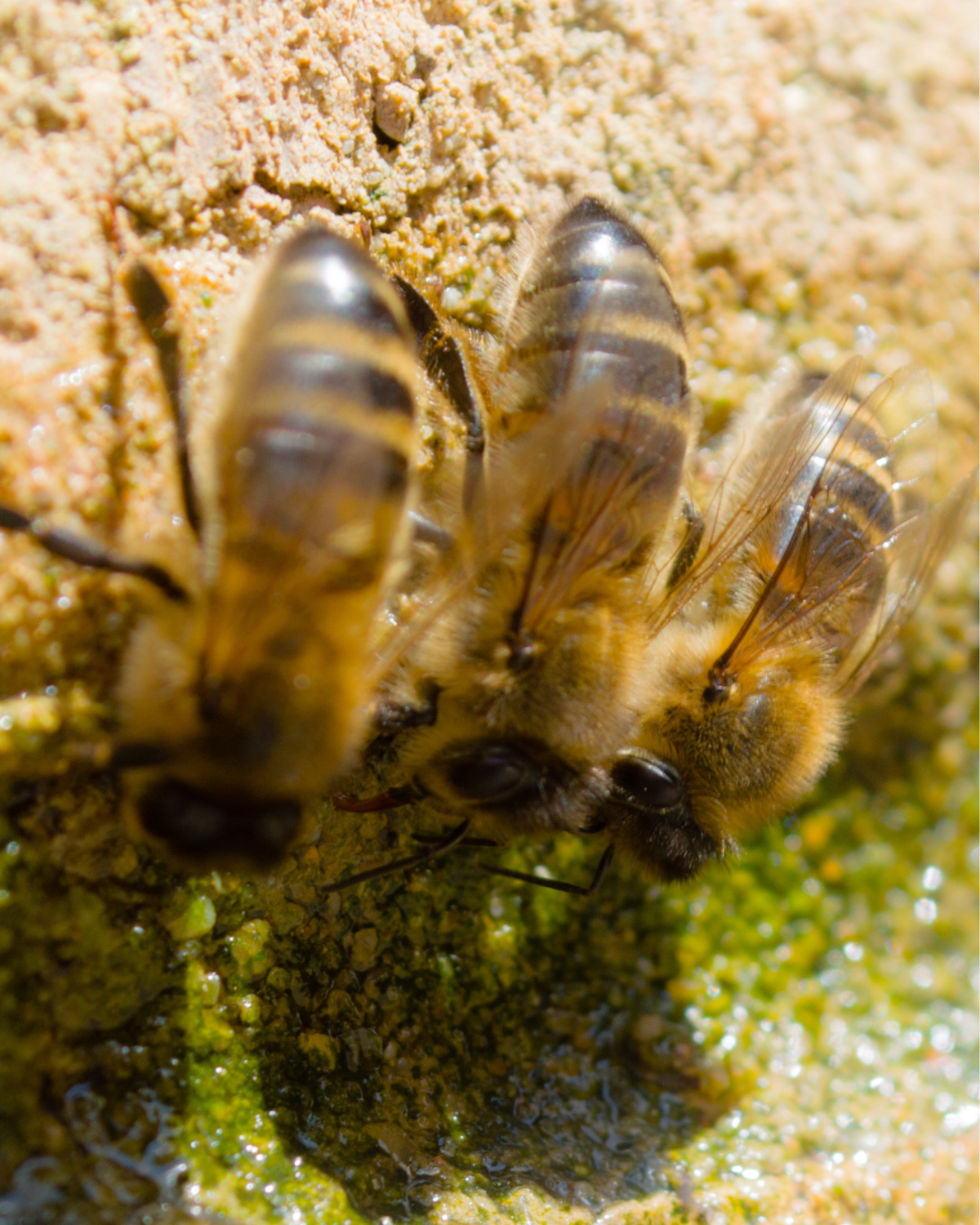Honey Bee Swarms
Honey Bee Swarm Removal
The Control Of Honey Bees

Because Honey Bee swarms are reportedly in decline, swarms deserve all the help we can give them.
With this thought in mind, it makes complete sense to realise that control is always a last resort.
Honeybee swarms can easily exceed 50000 bees and sometimes need specialist control. In contrast, most wasps nests contain just a few thousand insects.
This is especially true in situations where they end up in locations that pose a risk to humans.
Honeybee swarms in close proximity to humans usually make chemical control unavoidable.
Do Honey Bees Have Legal Protection?
In the UK it is not illegal to eliminate or control honey bees where they pose a risk.
Professional control requires that bee elimination is completed in the shortest possible time and that combs get removed or concealed. Comb concealment and removal avoids contamination of surrounding hives.
In 2019, one of the only pesticides (Ficam D) legally labelled to control bees safely without agitating the bees was re-labelled, removing its use on bees. The spray based sister product (Ficam W) has also been withdrawn as of 2020.
Alternatives exist, but have made the task much more difficult and expensive. This means honey-bee control has become more difficult, making non-lethal control more important than ever!
People often call us when a swarm descends down their chimney only to appear in the customers front room.
Beekeepers rarely find themselves available at short notice when swarms get inside a property. Swarms that become fragmented in this way are normally unviable or impossible to collect and relocate safely and easily.
Beekeepers don’t tend to like killing native honey bees in Bristol, leaving this process to experts like ourselves instead.
What Does Honeybee Swarm Control Cost?
Honeybee extermination can become an expensive exercise because of these strict but necessary guidelines.
Bee swarms often nest at a great height requiring specialist access. This must be available in the required configuration for swarm control.

Honeybee swarms regularly enter chimneys and require special access to get to them.
The combined cost of access, control and remediation can easily pass £1000.00 – a sobering thought!
If you had 50-100K insects descend down your chimney – would you let them stay?
Honey bees concealed in attics, walls or chimney voids might be safe to leave in place.
Where they do invade a home, the consequences can be horrific.
Protecting Honey Bees

Protecting bees and pollinators alike will ensure numbers remain vibrant and robust. The UK has a National Pollinator Strategy , and in Somerset, Somerset Council have a Pollinator Action Plan.
Evidence is also mounting that although bee populations look healthy, the overall bee diversity is in decline.
We all have a part to play in the bees story. Conservation begins at home, so learn about bees, share what you learn and help keep the buzz of bees alive for future generations to enjoy.